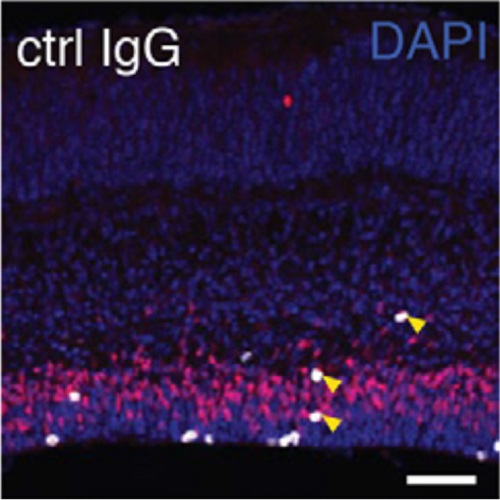Integrin αvβ3 and thyroid hormones promote expansion of progenitors in embryonic neocortex.
Neocortex expansion during evolution is associated with the enlargement of the embryonic subventricular zone, which reflects an increased self-renewal and proliferation of basal progenitors. In contrast to human, the vast majority of mouse basal progenitors lack self-renewal capacity, possibly due to lack of a basal process contacting the basal lamina and downregulation of cell-autonomous production of extracellular matrix (ECM) constituents. Here we show that targeted activation of the ECM receptor integrin αvβ3 on basal progenitors in embryonic mouse neocortex promotes their expansion. Specifically, integrin αvβ3 activation causes an increased cell cycle re-entry of Pax6-negative, Tbr2-positive intermediate progenitors, rather than basal radial glia, and a decrease in the proportion of intermediate progenitors committed to neurogenic division. Interestingly, integrin αvβ3 is the only known cell surface receptor for thyroid hormones. Remarkably, tetrac, a thyroid hormone analog that inhibits the binding of thyroid hormones to integrin αvβ3, completely abolishes the intermediate progenitor expansion observed upon targeted integrin αvβ3 activation, indicating that this expansion requires the binding of thyroid hormones to integrin αvβ3. Convergence of ECM and thyroid hormones on integrin αvβ3 thus appears to be crucial for cortical progenitor proliferation and self-renewal, and hence for normal brain development and the evolutionary expansion of the neocortex.

- Development 2014 Feb;141(4):795-806
- 2014
- Neurobiology
- 24496617
- PubMed
Enabled by:
